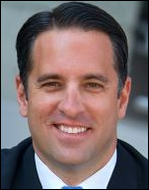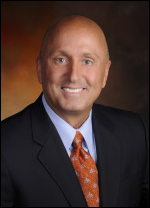Neither of those sound like good news for Oracle Health. After the lofty proclamations of the last couple years. still…
News 5/7/10
From Sea Pea Oui Couvert: “Re: say it’s not true. This is not supposed to happen when the entire hospital is wired. Millions spent on EMRs, yet they forget informed consent and then cover up the adverse events.” UPMC’s transplant program is cited by state health department inspectors for violating federal regulations, including failing to document organ and blood matches before transplant procedures were started. The state got suspicious when UPMC reported only one adverse even in a year.
From A Tax’ing Employee: “Re: our CEO at Sunquest. He just moved to Tennessee for what I heard were ‘tax reasons’.’ He has never lived in Tucson for the same reason. Is that fair that he is allowed to live anywhere to dodge taxes and we are not?” Unverified. If it’s my money as a customer or shareholder, I’m cynical about work-from-home CEOs unwilling to relocate to the home office. It’s their call, though, and I’m probably more old school in that regard given today’s virtual organizations.
From The PACS Designer: “Re: iPad’s booming sales. Apple has sold one million iPad’s since the recent launch, the fastest sales results ever for Apple. As we head toward the middle of this year, it will be interesting to see if there will be any waning in the monthly sales figures for the iPad Wi-Fi version now that the iPad 3G version is available for sale.”
Several dozen provider organizations, including AHA and AMA, offer HHS their comments (warning: PDF) on Meaningful Use. They and I agree on the parts we don’t like:
- The all-or-nothing approach, where you either meet all the criteria or get nothing (actually, I’m OK with that part as a taxpayer footing the bill).
- The aggressive timetable for complex applications such as CPOE and medication reconciliation that aren’t usually front-loaded in implementation projects.
- The overall short timeline.
- The underrepresentation of small practices on the HIT Policy Advisory Committee.
- The two EDI-related non-clinical requirements for eligibility and claims.
- The definition of a hospital using Medicare provider numbers.
- The parts I immediately pounced on when the proposed criteria were published — manual chart pulls are required to arrive at a denominator for electronic performance metrics, such as the percentage of orders placed via CPOE.
Weird News Andy uncovers a gem: two employees of Olive View-UCLA Medical Center are placed on leave after complaints to Joint Commission that they are running a beauty salon out of the hospital’s NICU. They were giving manicures and eyebrow waxes to co-workers, with one complaint alleging that a doctor “had a French manicure right on the high-frequency ventilator.” WNA also likes this research finding: dark chocolate can protect the brain in stroke patients, which means I’m set in an emergency because I like to keep some of the good stuff (more than 50% cacao) around.
Listening: the new CD from just-reunited Hole. Courtney Love doesn’t do it for me and I was hoping to hate the new music, but the band kicks it even though they’re all suing each other and membership changes hourly. I’ll be playing this quite a few times, I suspect.
McKesson signs an exclusive deal to eventually manufacture, implement, and support the i.v.STATION Robot and i.v.SOFT Workflow Engine from Italy-based Health Robotics. It’s pretty hot stuff.
If you are a nurse, happy National Nurses Week, which started Thursday (happy birthday, Florence Nightingale!) I love nurses (literally, since I married one), so here’s a shout-out to the one group of professionals (both male and female) that hospitals can’t run without. I wrote this in 2003 in their honor, obviously from a community hospital perspective since I was working at one of those instead of an academic medical center at the time:
The only critical people involved in patient care are nurses … My experience is that 80% of patient care is directly influenced by nurses, often via skillfully planted recommendations that allow doctors to believe they thought of it themselves. Your patient satisfaction surveys are almost purely driven by the quality and compassion of your nurses. So is your level of patient safety. Nurses clean up the vomit, hug the babies, keep doctors from killing patients, give the drugs, do the Code Blues, and comfort the families. All the rest of us are hangers-on who look like deer in the headlights on the rare occasions when we stray into an actual patient care area where human triumph or tragedy is unfolding with a nurse at its center … Not too long ago, a hospital was basically a clean building in a peaceful setting (!) where patients could rest and mend. That and nurses were about all anyone needed. Hospital work was charity. No MBAs, no arrogant doctors, no government red tape, no formulary of 5,000 drugs, and no cadre of specialists making large salaries to do small tasks. Oh, and by the way, no computers either. You know what? Life expectancy wasn’t that much different (if you exclude the benefits of vaccinations and reduced infant mortality.) Costs were a lot lower. No one got rich in healthcare. Without all the research, the computerization, the fancy architecture, and the lack of John Wayne "I will not let this patient die" heroics, things weren’t really all that much worse when it came to living and dying. If I’m sick, keep the CEO, CIO, PFS manager, and risk manager out of my room and give me the best nurses you have. When you get right down to it, a hospital is still a clean building with nurses. Everyone else is supporting cast, even if their salaries make them believe differently.
Business Week frowns at hospitals that use technology to determine whether patients can afford to pay their bills. Apparently the business publication does not like the idea that customers may actually be expected to pay for the services they consume. I clicked its Subscribe Now link and, given that philosophy, was shocked to find that their subscriptions are neither free nor payable at the reader’s discretion.
Jobs: Epic Inpatient EMR Manager, Eclipsys Physician Consultant, Senior Applications Analyst – CPOE, Epic Clarity Report Writers.
ONCHIT announces $220 million in grants to establish 15 Beacon Communities that will prove the value of HIT. I don’t exactly get that since the message is that they wouldn’t have bothered without the $15 million taxpayer gift (which doesn’t make a strong case for proving value at all), but I gave up long ago trying to dissect the particular pallets on which taxpayer money is being parachuted down over the countryside into greedily outstretched provider and vendor arms. Even the City of Tulsa gets $12 million in federal money to screw around with electronic medical records and see if anything good happens.
I see that Google now has the Google Apps Marketplace that offers third-party add-ins to Google Docs and relate apps. One I noticed contains administrator tools for rolling out Google Apps to the enterprise.
Maybe the doc-in-the-box trend died and I never noticed: Florida Hospital’s Centra Care walk-in clinics now take online appointments, saying it will significantly cut down on wait times. Meaning that if you just show up, which was the whole point, you’ll sit around like you would in the ED except instead of a seriously injured trauma patient holding you up, it’s somebody healthy enough to have made an advance appointment. That and posting ED wait times to troll for non-urgent patients makes me wonder what the heck providers are thinking out there.
Inspectors from the VA find lots of problems with the brachytherapy program at the Philadelphia VA Medical Center, among them a VariSeed radiation treatment planning PC that was unplugged for over a year despite regular clinician reports that it wasn’t working. It also wasn’t running on the hospital’s secure network and was used by employees to get on the Internet.
Merge Healthcare’s Q1 numbers: revenue up up slightly, EPS -$0.04 vs. $0.05. Now they’ve got a couple of hundred million dollars worth of AMICAS acquisition debt to service on top of that.
HERtalk by Inga
From Celtic Fan: “Re: athenahealth. Don’t know if you saw this article about athena wanting to increase its profile to compete better with the HIT Big Boys. Buried in the end of the article is some information on a new product called ‘athenaCommunity.’ Bet the privacy rights folks won’t think much of it.” athenaCommunity is slated to launch later this year, with discounts for providers willing to share patient data with other providers. Hospitals will pay athena a small fee to access patient insurance and medical information. I asked privacy guru Dr. Deborah Peel what she thinks about the idea. Celtic Fan predicted correctly:
This is an ABSOLUTE nightmare—it TOTALLY violates medical ethics and the patients’ rights to privacy — not to speak of Americans’ well-known constitutional rights to privacy. Physicians who go along with that could well violate state licensing laws which often require adherence to the AMA’s principles of Medical Ethics, as well as violate many state laws that REQUIRE informed consent for disclosures of many kinds of information, from genetic tests, to mental health information, to STDs, to addiction treatment information. athena and all the many vendors who coerce doctors to disclose patient health information without consent will have NO liability. Who do you think the patients will sue for violating their privacy? Their doctor, of course, who chose to use an illegal, unethical EHR system. athena will not pay for this massive privacy disaster —their doctor/users will.
British Columbia’s Interior Health Authority begins its Meditech 6.1 migration with technical assistance from Summit Healthcare.
IBM’s Integrated Health Services division launches a multi-year research project to determine how different actions may affect health. Big Blue will combine and analyze data from a wide variety of sources, looking for cause-and-effect relationships. The project will initially focus on childhood obesity.
Kronos reports second quarter revenues of $177.9 million, a 10% increase over last year. EBITA increased 28% to $41.3 million.
Data storage company Iron Mountain urges CMS to consider expanding Meaningful Use guidelines to include subsidies for digitizing paper records. Iron Mountain’s efforts remind me of similar pleas from the transcriptionist organizations, who think digitized transcription records should be recognized in the final Meaningful Use equation.
I’ve yet to venture to the Apple store to actually touch an iPad, though a field trip does seem to be in order. This HIT writer observed a in-store demo, of sorts, where a Genius was educating a group of healthcare providers on a variety of healthcare-specific applications. Sounds like Apple wants to assure a piece of the healthcare pie.
Clarian Health is changing its name to Indiana University Health next spring, in part to reinforce its partnership with Indiana University and the IU School of Medicine. Clarian owns or is affiliated with more than 20 hospitals and health centers in Indiana.
PatientKeeper presents Oakwood Healthcare System (MI) with its customer innovation award, recognizing the more than 1,000 users (600 of them physicians) who are using the company’s patient portal since its December introduction.
Hospital CIOs rank EMRs and CPOE as their top IT priorities for the next two years. Other high priorities include database initiatives, bar-coded eMARs, and hospital expansion. Among hospital IT managers and directors, EMR was ranked a mere 7th, far below PC refreshing, security initiatives, and CPOE. Another interest data point: the majority of hospitals were either developing telemedicine programs or already had something in place.
Albert Santalo, founder and CEO of the Web-based practice management company CareCloud, is named the Best Up and Coming Technology Innovator by the Great Miami Chamber of Commerce.
York Memorial Hospital (PA) selects Recondo Technology’s SurePayHealth solution for revenue cycle management.
The Texas Health Services Authority hires CTG to help plan the implementation of statewide HIEs.
Here’s a fun fact to share at your next cocktail hour. By 2020, the amount of digital information created within a year will reach 35 zettabytes. If you put that amount of data onto DVDs, they could be stacked halfway to Mars, making them quite inconvenient to access from your couch.
Gartner reports that Dell has gained the largest market share in HIT, making it the world’s largest provider of HIT services in the world. The ranking is based on 2009 revenues generated by both Dell and Perot Systems.
The 130-provider Jackson Clinic (TN) plans to move from its Misys EMR to Allscripts EHR, integrating it with its Allscripts Vision PM.
Siemens Healthcare appoints former Quest Diagnostics VP John Nosenzo to the newly created role of VP of Zone Customer Relations. Nosenzo will manage the company’s national accounts team and all zone general managers.
Odd: a GE Healthcare employee, having dinner with co-workers, is hit by a stray bullet. The 17-weeks-pregnant woman was sitting outdoors when she felt something hit her in the side. When she stood up, a bullet fell out. It came from a handgun fired from a shooting range that was about a quarter of a mile away. Fortunately, she was only bruised and scratched on her abdomen and both she and the baby are fine. An attorney for the shooting club says a member was at fault for shooting at an unapproved target (clearly).
Researchers at Brigham and Women’s Hospital find that using bar-code technology with an eMAR substantially reduces transcription and medication administration errors, as well as potential drug-related adverse events. The hospital documented a 41% reduction in non-timing admin errors and a 51% decrease in potential drug-related adverse events. Naysayers, feel free to send in your comments pointing out that just because A and B happened together, it in no way implies that A caused B or B caused A — as Mr. H always cautions. I’m just glad someone is taking the time and energy to try to figure out if all this technology really does save lives.











Maybe the CEO of Sunquest is Hispanic, or even Hispanic-looking, or maybe just very tan (many CEOs have nice tans, except under their golf shirts) and he/she didn’t want to take any chances driving around Arizona…
Note: The above comment does not reflect the CEO of my company, just many others 🙂
Documents reveal AT&T, Verizon, others, thought about dropping employer-sponsored benefits
http://money.cnn.com/2010/05/05/news/companies/dropping_benefits.fortune/?npt=NP1
The only critical people involved in patient care are nurses…
Thanks Mr. H. Sometime back I heard something I’ve never forgotten. That is: the only reason patients are in a hospital is because they need NURSING care. Nurses are the only 24/7 care given. Everything else could be outpatient, but the nurse is needed to monitor the patient and provide round the clock care.
I am proud to be a nurse!
Re: Business Week – Mr. H. is on the money. One more aspect to consider, we are about the only industry where you provide the service to someone who is supposed to pay with insurance and you don’t know what you will be paid (or what it will take to be paid) until well-after the service is rendered. Depending upon the insurer and the health care organization, the patient could be at fault – so they likely don’t know the liability either.
“If I’m sick, keep the CEO, CIO, PFS manager, and risk manager out of my room and give me the best nurses you have.”
Truer words have not been spoken.
“Naysayers, feel free to send in your comments pointing out that just because A and B happened together, it in no way implies that A caused B or B caused A — as Mr. H always cautions.”
I think the term is correlation does not imply causation. However when you have many examples or correlation and few to none of negative correlation we can make some conclusions.
The attempt to determine causality based on correlation is an error that any first year student of statistics is taught to avoid… but, apparently never remembers. Having taught statistics at the graduate school level, I am constantly amazed at how many reasonably educated individuals continually try to infer causality based on a perceived relationship between things. Perhaps in their childhood obesity analysis they will find that children who play videogames for extended periods are more obese than those who don’t play videogames. Therefore, videogames “cause” obesity … which would attribute much more power to videogames than they actually deserve. Perhaps, such intervening variables as the lack of exercise and increased snacking might actually play a part in the child’s weight problem….? So, if readers remember nothing else from that dang statistics class they were forced to take… remember that one cannot determine causality based on a correlational study!!!
Wow, with all the expose-like revelations, I felt like was reading HC Renewal (http://www.hcrenewal.blogspot.com/) rather than Mr. HISTalk. The athena one is particularly troubling, though on a second read not that unusual: sounds like the type of stuff where my cell phone number and address mysteriously gets in the hands of a company I’ve never solicited or done business with. With health care, though, people are even more concerned about privacy. Sounds like another way to to fuel the fire of concerns over digitizing records.
Thanks for the salute to nurses; it’s always great to read something positive in the health blogging world, and this profession is certainly one that earns its accolades. I’m thankful to all the nurses I’ve had help me through the years, including the ones I wasn’t even aware of. Little things like making a college student feel comfortable the first time she went to the doctor by herself, or empowering someone to get on her feet and to the bathroom after recovering from surgery and anesthesia, mean all the difference in the world to patients. Thanks to all who make that difference everyday!
I like what you said about nurses, Mr. HIStalk. “Without all the research, the computerization, the fancy architecture, and the lack of John Wayne “I will not let this patient die” heroics, things weren’t really all that much worse when it came to living and dying. If I’m sick, keep the CEO, CIO, PFS manager, and risk manager out of my room”. So true.
Earlier this week, it was Stanford and CPOE zealots across the country using a flawed baby study to promote the CPOE technology and up above, you post a hospital hiding its patient deaths and adverse events from DOH and CMS, doing things to patients without informed consent. With the blogging about anecdotes and do not disclose clauses, and the adage, “where there is smoke there is fire”, there must be embers of death still glowing in those CPOE chambers.
In all fairness, I will say this about the informed consent forms, that being they may have been signed but are hiding in the EMR in some infrequently visited compartment, or the DOH investigators were not trained on how to use these simple user friendly care record systems and simply gave up. It is hard to find vital information on EMRs. Is this a case of computer bites hospital?
The best example of correlation not being the same as causation can be seen when looking at all the diet soda drinkers. Clearly drinking diet soda causes obesity…
It is thrilling to see your shift in attitude and understanding of the dangers of the widespread deployment of HIT and waste of tax dollars when you say “Even the City of Tulsa gets $12 million in federal money to screw around with electronic medical records and see if anything good happens. ”
Not too much good is going to happen or be discovered. The mistakes will be different and harder to discover. Patients will die from neglect and it will be discovered that the computerization of medical care neither reduces costs or improves outcomes. There will be many unexpected deaths and there will be embarrassing moments when lab data was returned to the EMR but no one saw it in a timely manner, when absurd doses of medications are given to patients associated with the mindlessness of the users, and disruptions in communication depriving my co-nurses of the creative thoughts to figure out what is wrong and what is needed.
The major discovery will be that the vendors and HIMSS have ripped off the country.